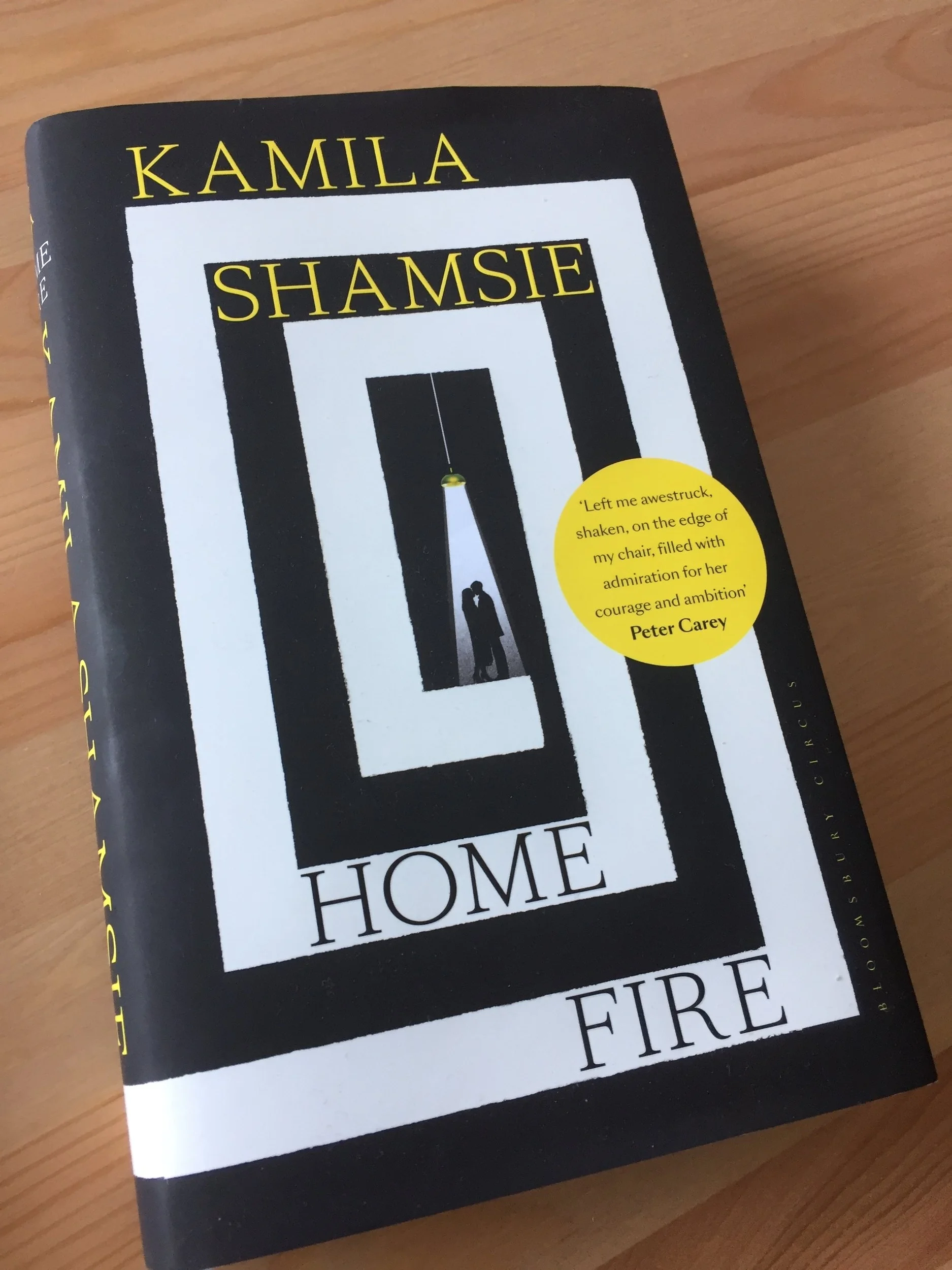Readers,
This week I was the grateful recipient of two novels. One was an excellent, semi-erotic set of short stories gifted to me by their author, who also happens to be a friend of mine. (How ought one respond when gifted semi-erotic short stories? Please get back to me with thoughts.) The other was Home Fires by Kamila Shamsie, which was given to me by a colleague and friend whose opinion on literature I trust implicitly - for no other reason than that, when I first met her, she was lugging all 700 pages of Wolf Hall to one of our client sites on the off chance that she'd find five spare minutes in our otherwise hectic workdays to eat through another 0.5% of that beast. (How's that for a run-on sentence?) Turns out, my trust in her was well founded.
The premise of Home Fires is this: two Muslim families living in Britain undergo a mini-diaspora - an eldest daughter leaves for her education, the favored son absconds to America while a media storm blows over, two younger siblings grow apart from one another, finding new friends, places, and pockets of society to inhabit. In the course of this diaspora, the two families become participants in plot lines whose arcs extend far beyond the pages of this novel. Shamsie uses these characters to take up issues like the treatment of Muslims living in the West, the rise of ISIS, and, on a more familiar level (for me), the ubiquitous reality of living between conflicting loyalties.
There are very few books that have made me stop and think "writing this took bravery" (Baldwin's The Fire Next Time being one exception that comes to mind). But let there be no mistake - Kamila Shamsie's Home Fires is an act of profound courage. This is not just because of the political moment which she speaks to - although she does that exceptionally well. It is also because of the honesty with which her characters face the most difficult decisions of their lives: between country and son, between sister and brother, between love and principle. When confronted with these choices the characters struggle - not because they don't want to do what is right, but because they cannot decide what is right. Home Fires observes their struggle - examining both sides of each choice until all hard lines begin to dissolve.
The consequence is that there are no clear winners in this book. Patriotism does not triumph, nor does filial or conjugal love. Gradually, we come to realize that, like Antigone, from which this novel draws inspiration, Home Fires is a tragedy - a mode of literature that seems uniquely suited to this time in our history.
Readers, I have lived between two countries all my life. My countries (the US and New Zealand), are not at odds, but they are different, and they ask different things of a person. As such, the sensation of being caught between two worlds is not completely unfamiliar to me. The gentleness with which Home Fires treats those who are caught between worlds hit me at my core. There is no judgement here. Instead, Shamsie demonstrates through her own writing the empathy needed to bridge the gap between two worlds. She gives her characters the time and attention they need to be understood - showing us by example how to go about beginning to understand each other.
Here is Shamsie bringing us into the world of these characters, through small moments of implication, beautifully rendered: "She unpinned the hijab, folded it carefully and placed it between the two of them on the kitchen counter... She shook her head slightly and her hair, long and dark, fell about her shoulders like something out of a shampoo advertisement. She looked at him, expectant."

